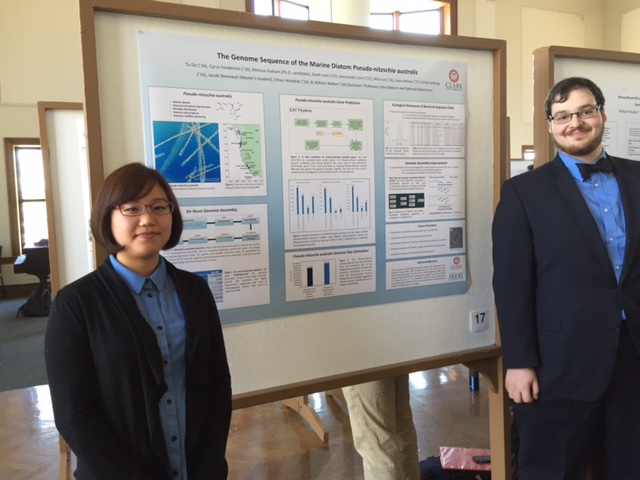BIOL 230 – The Human Genome
This course will provide a foundation for the basic concepts in human genomics. Topics covered will include: genome structure and function, human evolution and paleogenomics, human migration, natural selection in human populations, genetic disease, microbiomics, epigenetics, and personalized medicine and ethics. The format of the course will be a combination of group projects, discussion of primary literature, and lecture.
2014 Student Podcasts
2016 Student Podcasts
- Group 1 – Schizophrenia
- Group 2 – AncestryTesting
- Group 3 – Color Vision
- Group 4 – Otzi the_Iceman
- Group 5 – FOXP2
MBB 101 – Introduction to Bioinformatics (formerly BINF 101)
This course will provide an applied introduction to bioinformatics, computational biology, and comparative genomics. Topics covered include genome assembly, gene prediction, functional annotation, gene expression quantification, variant identification, etc. Students will work in research teams to analyze both novel and data-mined DNA and RNA sequence data within a LINUX environment. Teams will research the biology of sequenced organisms, evaluate methodologies, as well as plan and carry out computational analysis to test hypotheses.
BIOL 209 – The Genome Project
The Genome Project offers students a unique opportunity to directly apply the bioinformatics and comparative genomics skills acquired during Introduction to Bioinformatics (BINF 101) in the analysis of a novel genome. Each year, students will work collaboratively in small research teams to piece together the entire DNA blueprint of an organism with no existing reference genome. Students will evaluate and apply genome assembly, gene prediction, functional annotation, and variant discovery algorithms to better understand the genome structure, and functional biology of sequenced organisms. Analysis will be conducted within a LINUX environment through the Clark University Supercomputing Cluster.

